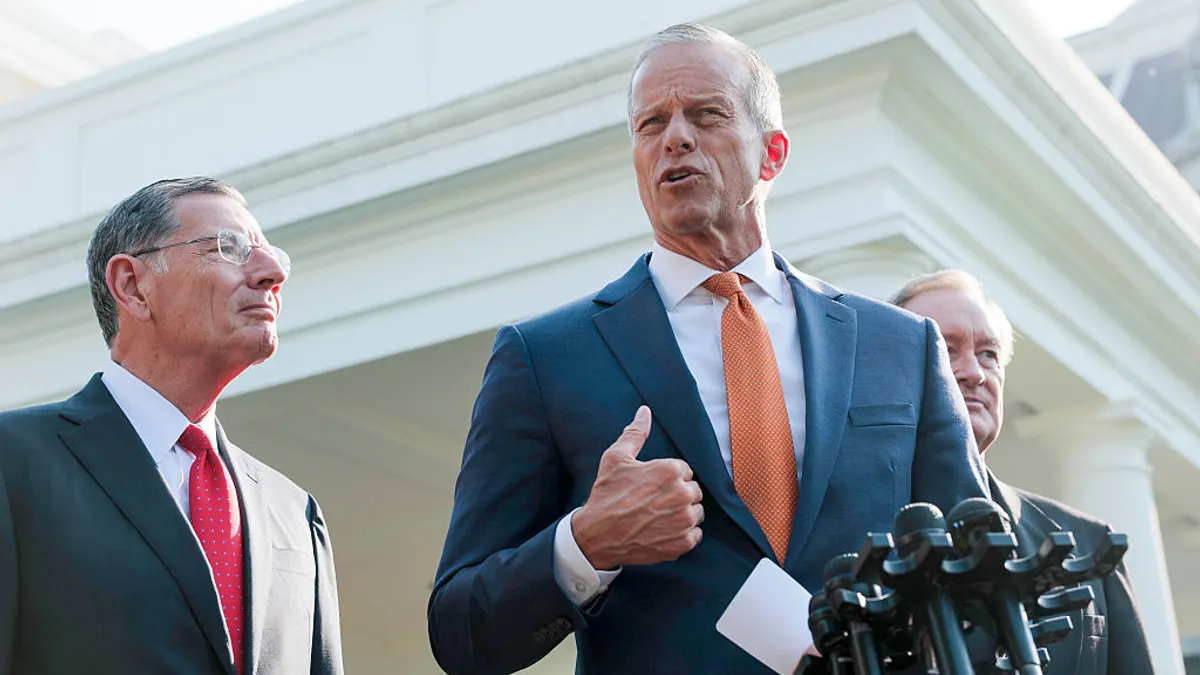Dive Brief:
- The full text of the Senate Finance Committee’s 549-page version of the massive tax and spending bill would make permanent a number of business-friendly tax cuts from President Donald Trump’s first term before they expire, including a trio dubbed the “big three.”
- Tucked into the lengthy text, the Senate committee proposed to permanently allow 100% corporate bonus depreciation related to capital investments, as well as expensing for corporate research and development costs and the use of more favorable calculations related to interest expenses deductions, according to Marc Gerson, a partner who specializes in tax policy at the law firm of Miller & Chevalier. The House has proposed to extend the relief through 2029, he said.
- The tax relief is a big priority for Senate Republicans and also enjoys a lot of bipartisan support but it is costly, Gerson said. “It’s very expensive and has a big deficit impact,” Gerson said in an interview. “That’s probably the most controversial part of it.”
Dive Insight:
The budget legislation lays the foundation for much of President Trump’s domestic agenda, encompassing defense, border security and other priorities. The “One Big Beautiful Bill Act” version that already passed the House last month would also further pare back most clean energy production, manufacturing and investment tax credits, according to CFO Dive sister publication ESG Dive.
The Senate language is now going through a process known as the “Byrd Bath,” Gerson said, through which the Senate parliamentarian considers arguments from lawmakers for pulling pieces of the bill out that don’t align with the Byrd rule, which requires that reconciliation bills be focused on fiscal issues.
“You could see extraneous provisions pulled out of the bill just to make sure it doesn’t face procedural problems on the Senate floor,” Gerson said. For example, the Senate parliamentarian blocked a proposal to fold the PCAOB into the SEC due to budget reconciliation rule violations, The Wall Street Journal reported Friday.
Debate over the tax provisions could stem from their estimated cost, but the revenue estimates associated with them have yet to be released by the Joint Committee on Taxation, Gerson said Friday. Earlier this week, Gerson said he expected that information to be available in the coming days while calling the bill process “fluid.”
Gerson said the Senate text is effectively serving the purpose of a markup or “trial balloon” which will be used to gauge support in both the House and the Senate before changes are made and it is taken to a full Senate vote. But it’s such a big bill with many likely changes, Gerson doesn’t expect the bill will be passed by July 4 as some had hoped. The process will most likely stretch further into July, he said.













